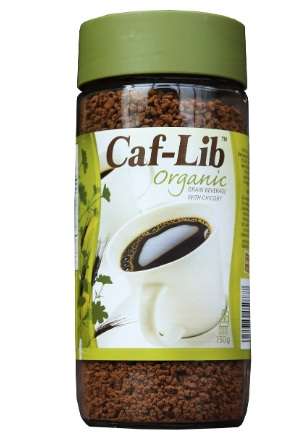
In recent years, the shift towards healthier lifestyles has led to the rise of organic coffee substitutes. These alternatives to traditional coffee are gaining popularity for their health benefits and unique flavors. Organic coffee substitutes are not just about avoiding caffeine; they represent a broader movement towards conscious consumption, where every sip aligns with personal health goals and ethical standards.
Key Takeaways
- Health Benefits: Organic coffee substitutes often come packed with nutrients and lack the caffeine that can cause jitters or sleep disturbances.
- Variety: There’s a wide range of options available, from herbal blends to grain-based beverages, offering a taste for every palate.
- Sustainability: Many substitutes are produced with a focus on sustainability, appealing to environmentally conscious consumers.
- Adaptability: These substitutes cater to various dietary restrictions and preferences, ensuring there’s an option for everyone.
What is an Organic Coffee Substitute?
An organic coffee substitute is a beverage that mimics the taste or experience of coffee without containing actual coffee beans. These substitutes are typically derived from natural ingredients like chicory, barley, or even fruits and nuts.
The aim is to provide a comforting, warm beverage that fits into a range of lifestyles and dietary needs, from those avoiding caffeine to individuals seeking more nutrient-dense options. Compared to regular coffee, these substitutes often offer a smoother, less acidic experience and come with their own set of health benefits, making them a compelling choice for health-conscious consumers.
Popular Organic Coffee Substitutes
The landscape of organic coffee substitutes is diverse, offering a plethora of choices to suit every taste and preference. Let’s explore some standout options that are not only delicious but come with their own unique benefits.
- Crio Bru Brewed Cacao: This innovative beverage is made from 100% pure ground cacao beans, offering a robust chocolate flavor. It’s a powerhouse of nutrients, providing antioxidants and magnesium, and it’s almost entirely caffeine-free. Crio Bru is an excellent choice for those seeking an energy boost without the jitters associated with caffeine.
- FigBrew Figgee: Crafted from 100% roasted ground figs, Figgee offers a smooth, mellow taste that’s reminiscent of coffee but without the caffeine. It’s low in acid and calories, making it an ideal choice for a healthy morning start. Rich in antioxidants, vitamins, and minerals, Figgee supports a well-rounded diet.
- Coffig Original Organic Coffee Substitute: Made from roasted figs, Coffig provides a caffeine-free alternative that doesn’t skimp on flavor or health benefits. It’s an excellent option for those looking to reduce their caffeine intake while still enjoying a rich, satisfying beverage.
Health Benefits of Organic Coffee Substitutes
Switching to organic coffee substitutes can offer a range of health benefits, catering to those who are caffeine-sensitive or looking for added nutritional value in their beverages.
Reduced Caffeine: Many organic substitutes are caffeine-free or contain minimal caffeine, reducing the risk of jitters, anxiety, and sleep disturbances associated with traditional coffee consumption.
Nutritional Content: Substitutes like chicory root coffee are rich in inulin, a type of prebiotic fiber that supports digestive health. They can also offer vitamins, minerals, and antioxidants, contributing to overall well-being.
Health Boosts: Alternatives such as kombucha tea not only provide a unique flavor but also offer probiotics, which can enhance gut health. Chicory root, another popular substitute, has been linked to improved blood sugar control and digestive health.
Incorporating organic coffee substitutes into your diet can be a delightful and health-conscious choice, offering varied flavors and benefits that cater to a wide range of preferences and dietary needs.
How to Choose the Right Organic Coffee Substitute
Selecting the ideal organic coffee substitute involves considering your taste preferences, health goals, and preferred brewing methods. If you enjoy a rich, robust flavor, a cacao-based substitute like Crio Bru might be appealing.
For a fruity, lighter taste, FigBrew Figgee could be the right choice. Health considerations are paramount; if you’re looking for digestive benefits, chicory root coffee, rich in inulin, might be ideal. Consider the brewing method that suits your lifestyle—whether you prefer instant mixes or enjoy the process of brewing a substitute like traditional coffee.
DIY Organic Coffee Substitute Recipes
Creating your own coffee substitute at home can be a rewarding experience. For a simple chicory root brew, roast chicory root, grind it, and brew as you would coffee. A barley cup can be made by simmering roasted barley in water, straining it, and enjoying it hot. Experimenting with these ingredients allows you to customize the flavor to your liking, creating a personalized beverage that aligns with your taste and health preferences.
FAQs
Are organic coffee substitutes completely caffeine-free?
A: Many are, but some may contain minimal amounts of caffeine. Always check the product details.
Can these substitutes provide the same energy boost as coffee?
A: While they may not offer the same caffeine kick, many substitutes contain other energizing nutrients or compounds.
How do I brew organic coffee substitutes?
A: Brewing methods vary, but many can be brewed just like coffee, using a coffee maker, French press, or even steeped like tea.
Final Thoughts
Organic coffee substitutes offer a world of flavors and health benefits, catering to a variety of tastes and dietary needs. Whether you’re seeking to reduce your caffeine intake, explore new flavors, or reap the health benefits of alternative ingredients, there’s likely a substitute that suits your preferences. Experiment with different options and recipes to discover your perfect morning brew.









